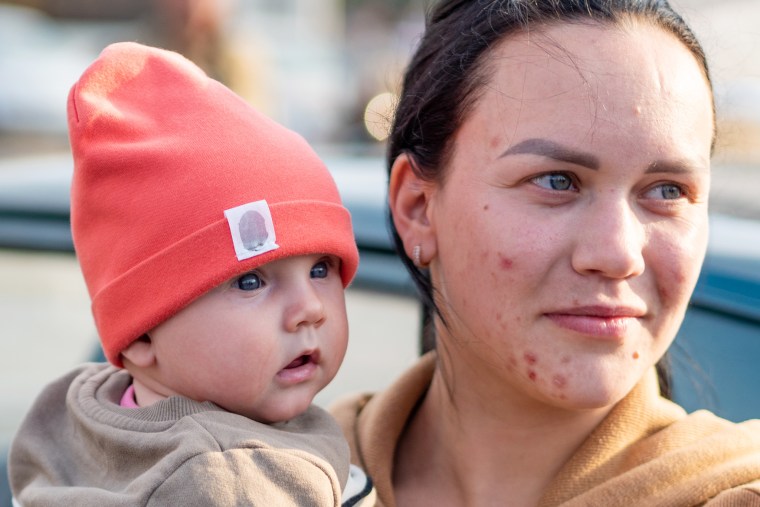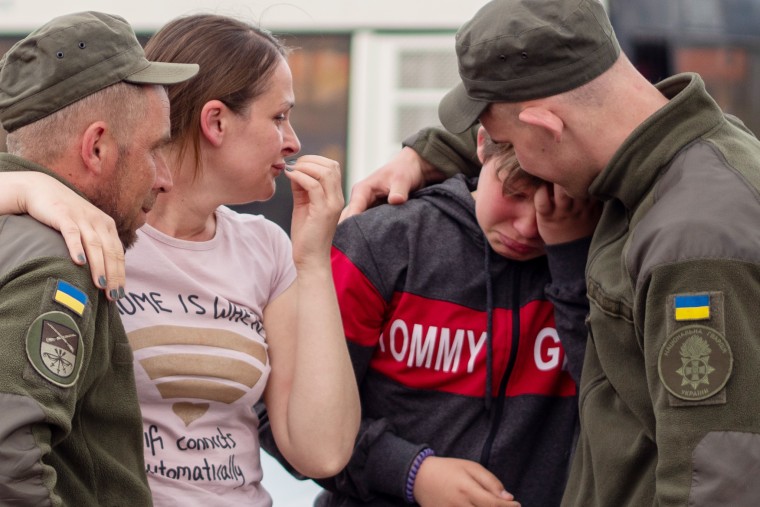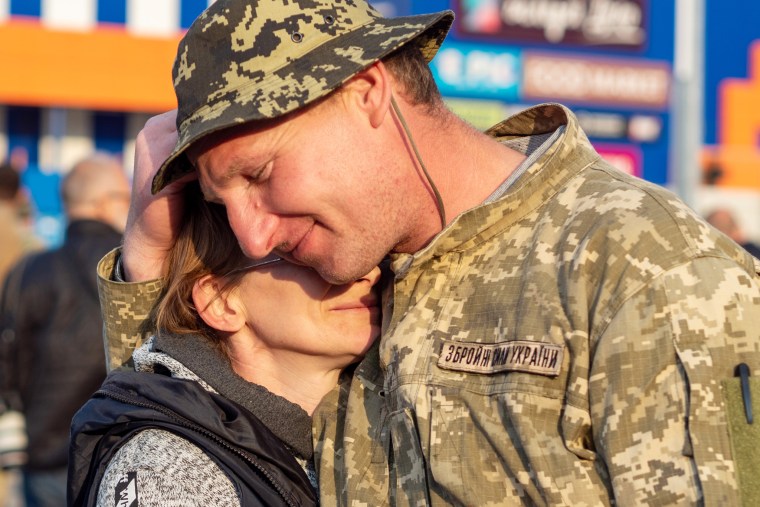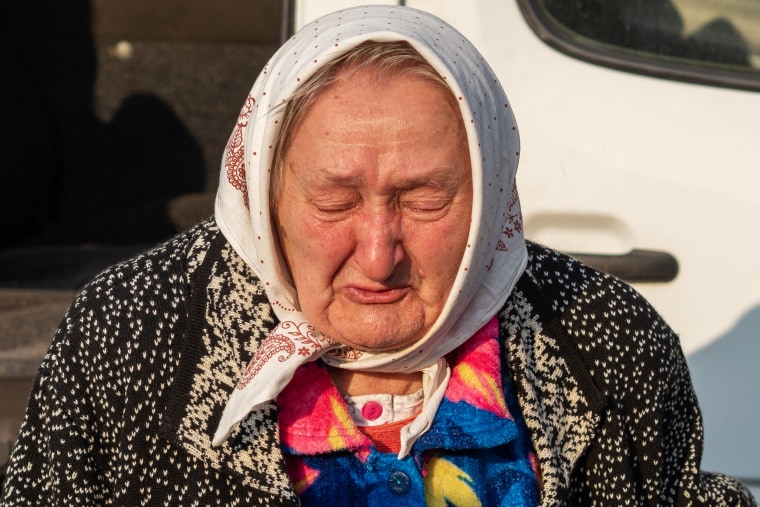ZAPORIZHZHIA, Ukraine — Tears of joy and tears of sadness, tender embraces and passionate kisses — wave after wave of human emotion washed up on an east Ukraine parking lot this week that has become a safe haven of sorts for civilians fleeing Russia’s invasion.
The flow of cars never stops for long. Vehicles nearly bursting with people and luggage roll into the lot throughout the day. Weary families register with authorities and access help from aid agencies that have set up on the asphalt in Zaporizhzhia, some 370 miles southeast of the capital, Kyiv.
Nastya Ponomarenko, 24, crying as she bounced her 5-month-old daughter, Alysa, on her shoulder, fled from occupied Nova Kakhovka, a city just up the Dnieper river from Kherson.
“We were living a good life before the invasion,” she said. “I really want all of this to end.”
More than 11 million Ukrainians are believed to have fled their homes since Russian forces invaded on Feb. 24, and many of those fleeing to Zaporizhzhia have seen some of the worst of the fighting.

Mariupol has been under relentless bombardment for several weeks, but a break in the fighting in recent days has allowed a steady flow of people to leave. Busloads of civilians from the port city’s besieged Azovstal steel plant are expected to arrive at the reception center for displaced people in the coming hours.
Ponomarenko was one of scores of exhausted mothers passing through the center that day. Some breastfed under blankets, while others sat in cars to gain a moment’s peace while their children ran around in the lot.
Mariupol resident Valentina Fiodorovna, 79, was one of several elderly women who burst into tears on arrival.
“There were people buried near our house,” she said. “We had no food, no water, nothing. We were so grateful for the people who shared their food with us.”

Yulia, 74, who declined to give her surname for security reasons, was also overwhelmed with emotion after stepping out of her car to talk to reporters.
“When I was going through the Russian checkpoints, I was crying,” she said. “But when I got to the Ukrainian ones I wanted to get out of the car and hug them all.”
Several cars had a homemade sign with the Russian word for “old people” written on it. In backseats, older men and women covered themselves in blankets.
More common were signs saying “children.” Many of the young people were subdued and appeared to be taking care of younger siblings and pets.
People who had waited at the car lot for hours for loved ones among the evacuees ran to them when they arrived, throwing their arms around them and squeezing them tight.

A few people in the parking lot were uniformed servicemen waiting to meet family members who had been trapped by the fighting.
“I haven’t seen my wife for a year,” one man, dressed in military fatigues, shouted at reporters as he hugged and kissed his partner.
A less passionate, though still poignant, reunion occurred between Andriy Lutsenko, 49, and his two cats, which he’d gone to Mariupol to rescue after being forced to flee a month earlier.
“I couldn’t just leave them there,” he said.
Almost every vehicle contained at least one family pet, the animals a clear source of comfort to their owners, who held them close and cuddled them.
“This is Platon Platonich,” said 15-year-old Marina Valyera, one of four sisters in a family of six, showing off her small dog.

The family stood with their few belongings in a spot meant for a car. They had been dropped off after hitchhiking from the town of Tokmak, said Marina’s mother, Iva Valyera, 37.
“We couldn’t afford the 2,000 Hryvnias ($68) per person it cost to pay for transport,” she added.
After completing the family’s registration with the authorities, Valyera scooped up Platon and zipped the dog into the top of her jacket before moving on.
Her youngest daughter, Angelina, 7, flashed a peace sign as they walked away.

